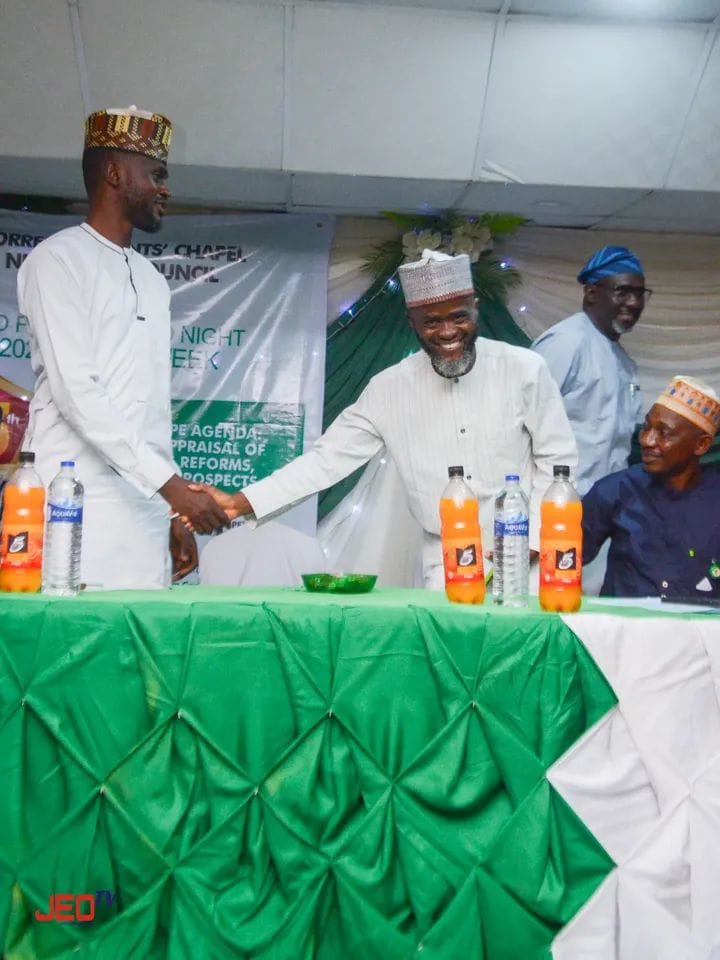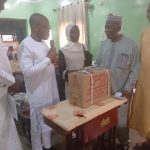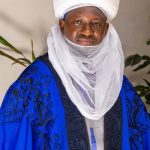From Taiye Joseph, Ilorin
The 45th anniversary of the Nigeria Union of Journalists (NUJ) Correspondents’ Chapel, in Kwara State, recently, became more than a celebration as it turned into a powerful call for justice and accountability.
Presidential aspirant, Dr. Gbenga Olawepo-Hashim, who was honoured with an Award of Excellence, dedicated his award to Nigerian youths and “all victims of institutional abuse.”
Represented by Abdulrazaq Hamzat, Hashim, told the audience of journalists, civil society leaders, and political figures that the recognition was not about him, but about giving voice to those silenced by systemic oppression.
“This award is for every young Nigerian who has been victimised by the very institutions meant to protect them,” he declared, earning loud applause.
Hashim accompanied his words with a cash donation to the Correspondents’ Chapel, stressing that an independent and fearless press is “the pillar of democracy” and urging journalists to remain courageous in holding institutions accountable.
Speaking on the dangers of institutional abuse, particularly in academia, Hashim described it as “a silent killer of democracy” that stifles innovation, mutes dissent, and erodes trust in governance.
He recalled how the University of Lagos withheld his degree certificate over student activism disputes.
“They could withhold a certificate, but not knowledge,” he said, revealing how the experience inspired him to establish Set and Sell, a political communication firm that became the foundation of his success as a strategist and entrepreneur.
Hashim also cited Hamzat’s own ordeal, where he was expelled and denied a Master’s degree by the National Open University of Nigeria (NOUN), over student leadership issues. He condemned such actions as “a dangerous stain on Nigeria’s democratic credentials” and urged institutions to resolve disagreements intellectually, not through victimisation.
NUJ leaders said Hashim was honoured for his national vision and the impactful work of the Gbenga Hashim Foundation, which has touched lives across Nigeria.
The anniversary brought together journalists, politicians, and activists, united in calls for stronger institutions that protect rather than oppress.
For many in attendance, Hashim’s message was a reminder that the struggle for justice is not just political — it is deeply personal for those who have lived through systemic abuse.






